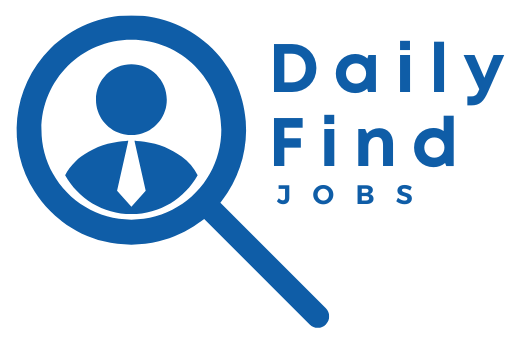Starting a resume with no experience might seem daunting, but it’s an opportunity to creatively showcase your skills and potential. Highlighting what you do have—education, volunteer work, or internships—can effectively set you apart in the job market. By emphasizing your strengths and willingness to learn, this guide will equip you with practical advice on how to create a compelling resume from scratch. Let’s explore innovative ways to demonstrate your value to potential employers.
Highlight Relevant Skills
In crafting a resume without experience, focusing on showcasing your skills is crucial. Employers often value the skills you bring to the table as much as, if not more than, your direct work experience. Consider the skill sets that are most relevant to the position you are applying for.
- Transferable Skills: These are abilities applicable across various jobs such as communication, teamwork, problem-solving, and time management.
- Technical Skills: These may include computer proficiency, familiarity with specific software or programming languages, and any other technological skills relevant to the role.
- Interpersonal Skills: Highlight how your ability to interact effectively with others has been demonstrated through group projects or community involvement.
Additionally, remember that organizational and leadership skills can make a substantial impact. If you have led any projects, even small ones, or managed groups during academic assignments, make sure to bring them to the forefront.
Use bullet points to concisely describe each skill with evidence of how you’ve developed it. For example, list a skill followed by a short sentence that shows a specific instance you utilized that skill effectively. This strategy helps potential employers get a clear picture of what you can bring to their team.
Emphasize Education
When constructing a resume with no prior professional experience, it’s vital to emphasize education as a core component of your skillset. Education can provide a solid foundation and demonstrate your potential to employers. Here is how you can make educational accomplishments stand out:
-
Detail Your Educational Background:
Include details such as the degree obtained, the institution, and any relevant coursework that aligns with the job you’re applying for. If your GPA is high, above 3.5, consider including it as well.
-
Highlight Academic Achievements:
Mention any awards, honors, or scholarships you have received. This could be Dean’s List recognitions or other relevant academic acknowledgments, which show your commitment and capability.
-
Describe Important Projects:
If you’ve completed significant projects or research papers that align with the job, briefly describe them. Include the project’s goal, your role, and the outcomes or findings.
-
Showcase Involvement:
If you participated in extracurricular activities that developed relevant skills or leadership qualities, mention them. Clubs, organizations, or student government roles also display initiative and the ability to work in team settings.
By effectively highlighting your educational background, you offer a glimpse into your academic competencies and qualities that are transferable to the workplace.
Include Volunteer Work
One effective way to strengthen your resume, especially when you’re lacking professional experience, is to highlight any volunteer work you’ve done. Volunteer work not only reflects your commitment to social causes but also demonstrates valuable skills that are transferable to the workplace.
When listing volunteer experiences, provide specifics about your role and the skills you gained. Be sure to use action verbs and quantify your achievements wherever possible. For instance, if you organized a food drive, mention how many supplies were collected and distributed.
Additionally, explain the impact of your volunteer work on the community or organization. This could include any positive changes or achievements attributed to your efforts. By illustrating the significance of your contributions, you underscore your ability to make a difference, which is an attractive quality to potential employers.
Volunteer work also allows you to demonstrate soft skills such as leadership, teamwork, or problem-solving. If you coordinated a team of volunteers, you’ll want to highlight your leadership skills. If your role involved managing budgets or resources, touch on your organizational abilities.
Remember, the key is to present your volunteer work as a legitimate and significant part of your development, linking it directly to the job you are applying for. By doing this, you effectively fill gaps in your resume with experiences that are both productive and meaningful.
Leverage Internships
Internships are invaluable opportunities to gain practical skills and build your experience when you have yet to enter the workforce officially. Consider including any internships you’ve completed on your resume to showcase the experience you’ve gained and how it relates to the job you’re applying for. When listing internships, include the name of the organization, your role, and the duration of your internship. Detail key responsibilities and accomplishments to show employers what you learned and how you brought value during your time there. If your internships involved tasks directly related to the job you’re seeking, emphasize those aspects to highlight your readiness and capability. Don’t forget to
mention any achievements
or recognition you received, as these can set you apart from other candidates with less direct experience.
Showcase Personal Projects
Even if you’re just starting out, you might have personal projects that demonstrate your skills and dedication. These can be incredibly valuable on a resume when you don’t have formal experience. Personal projects can show employers that you’re proactive, capable of managing time, and passionate about your industry.
Why Personal Projects Matter
Employers appreciate applicants who have the initiative to embark on their own projects. Working on personal projects showcases your ability to apply knowledge in practical scenarios, which is a great indicator of potential on-the-job performance.
Consider detailing any coding projects if you’re in tech, creative writing for content creation roles, or even a garden design for landscape positions. Each project should highlight skills such as problem-solving, creativity, and technical ability.
How to Present Your Projects
List these projects in a dedicated resume section. Use clear, concise descriptions that offer insight into what you achieved and learned through the projects. Highlight key responsibilities and how the experience aligns with the job you’re applying for.
Key Tips:
- Include a link to a portfolio or GitHub page to provide evidence of your work.
- Mention any tools or software you used, such as Adobe Suite, Visual Studio Code, or other relevant technologies.
- Quantify results where possible, such as audience reach for a blog or number of completed projects.
Remember, these projects tell a story about your drive and initiative, helping you stand out despite a lack of professional experience.

